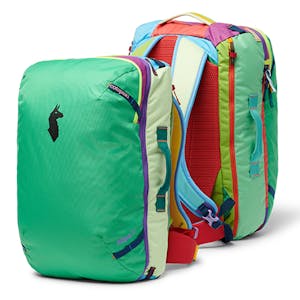In 1995, Charlie Paterson moved to remote Jamestown on the Hollyford Track where he lived in isolation for seven years. He’s just self-published a book, Out of the Wild, detailing the challenges of building a life in the wilderness and why he eventually had to call it quits.
Why live in Fiordland National Park?
I’d done a lot of tramping and hunting in Fiordland and the idea very much appealed to me. I had a stressful job managing salmon farms and as a hobby, I researched all the freehold titles in Fiordland National Park and discovered the titles at Jamestown [beside Lake McKerrow on the Hollyford Track]. Originally 136 sections were surveyed there in 1870 to create a West Coast port to service the Central Otago goldfields. The project failed and I purchased three of the five remaining titles. When I bought them in the 1990s, their value was very debatable. Some titles had government valuations of only three or four hundred dollars and they weren’t seen as a commodity.
How did you build a retreat in such an isolated spot?
I had the materials helicoptered on-site, but a series of errors meant most of them were dropped at McKerrow Island at the other end of the lake and the Hollyford Airstrip, two to three days walk up the Hollyford River. Both areas are flood-prone so I had to get them to Jamestown or I’d have lost everything. I floated the materials down the river by myself in the middle of winter. It was incredibly dangerous and absolute stupidity on my part, but I had little choice.
How did you survive?
Initially I planned to build an upmarket lodge for tourists coming from Milford Sound, but I ran out of money and ended up doing all sorts of silly things to survive. I would get supplies flown in from Milford Sound every six months, which consisted of 500kg of tinned and dried goods. The rest of my diet relied on shooting deer every seven to 10 days. I didn’t have enough money to run a generator so when I shot a deer I’d store the meat in brine.
When I finished the lodge, I survived on income from trampers walking the Hollyford Track. Back then it was very different – the track wasn’t very busy and I wouldn’t see anyone over winter.
What’s it like living in such isolation?
It’s not good for you. I was the only permanent resident in Jamestown – my nearest neighbour was a day’s walk away at Big Bay. I became very introverted. One winter, I went for three months without seeing or talking to anyone. When I finally saw people coming down the Hollyford, I hid in the forest. After that, I realised it wasn’t healthy. I got quite dark, depressed and angry towards the end and developed a bleeding bowel because of my poor diet. That’s when I decided it was time to leave.
What was it like to rejoin society?
Initially, it was challenging. It took a while to re-establish my confidence and I noticed the noises of civilisation far more. In a remote location, all of the sound is natural, whether it’s rain on the roof or thunder in the hills – any mechanical sound like a helicopter or a jet boat really stands out. When you get into a cityscape, you hear man-made sounds all of the time. It takes a while to get used to.
People think of Fiordland as being pristine, but is it?
I became passionately angry about what’s happening to our biodiversity and the decreasing birdlife there. If you read early accounts of Fiordland and compare that to what we have now, they’re poles apart. The forest is meant to be alive with birdlife, but there’s a lot of silence in the forest now.
Do you think people over-romanticise living in the wilderness?
Some aspects of the lifestyle are great, almost addictive – you’ve got the freedom to do what you like – but on the flipside, sustaining yourself in the wilderness is very tough if you’re doing it all by yourself. I tried to build a wilderness retreat on a beer income, whereas it’s really only possible if you’ve got a champagne income. Given the chance, I wouldn’t do it again.








